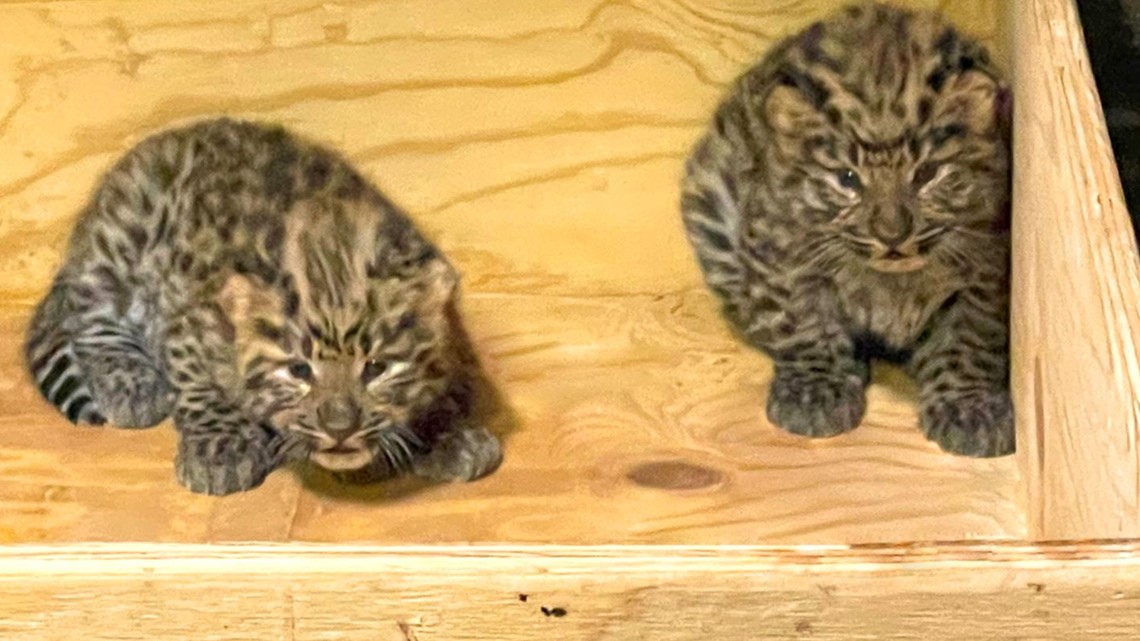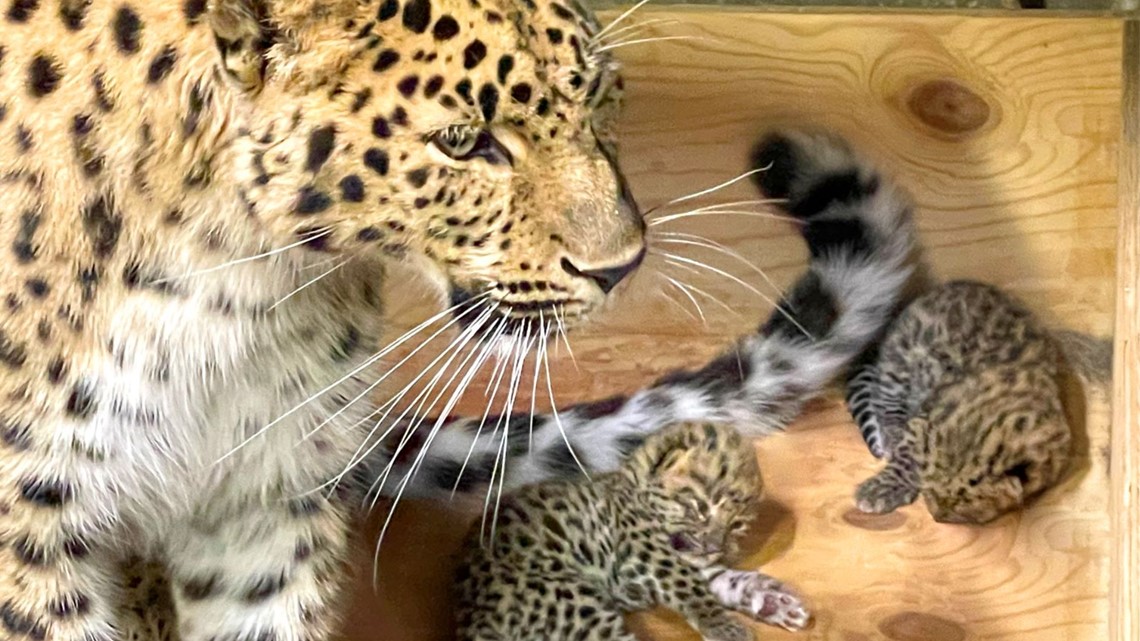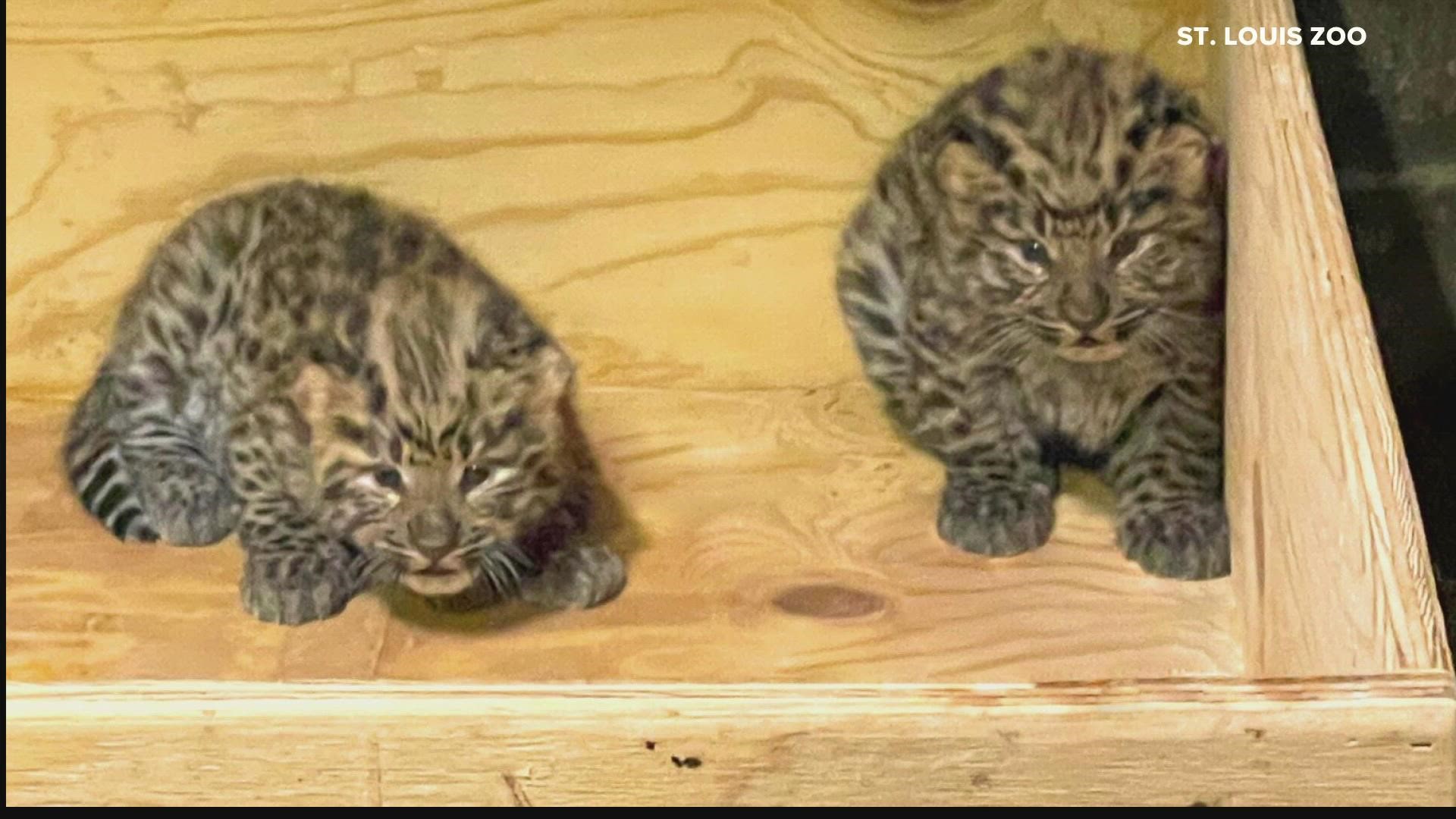ST. LOUIS — This may be the cutest story you see all day.
Two Amur leopard cubs were born at the Saint Louis Zoo on April 22. The cubs were the first born at the zoo since 2010.
According to the zoo, their births are a significant contribution to the population of Amur leopards in zoos across the country as they are considered one of the most endangered cats in the world.
The cubs were named Anya and Irina, which mean “grace” and “peace.” This is the first litter for 4-year-old Dorothy “Dot” and 4-year-old Samson.
Dot was born at the San Diego Zoo and moved to St. Louis in the fall of 2020. Samson was born at the Chicago Zoological Society’s Brookfield Zoo and moved to St. Louis in the fall of 2021.


The zoo said Dot and the cubs are doing well and will remain in their private indoor maternity den inside Big Cat Country for the next few months. The cubs will remain there to allow time for them to grow large enough to safely navigate the outdoor habitat.
“Dot is an excellent mother. It’s exciting to see this first-time mom providing great care to her cubs,” said Steve Bircher, the Kevin Beckmann Curator of Carnivores at the Saint Louis Zoo. “There are so few of these rare big cats left in the world and each birth is extremely important for the survival of the species.”
The zoo said the first few months are critical for newborn leopards and the animal care team is closely monitoring the family. At their 2-week checkup, the cubs weighed about 2.5 pounds, which is normal for their age. Adult Amur leopards can weigh between 60 and 125 pounds.


There have been four other cubs in three litters born at the Saint Louis Zoo since 1991. Fewer than 100 Amur leopards remain in the wild across the world.
“Without the conservation effort of zoos, this species could go extinct, due to loss of genetic diversity and other threats to its survival in the wild, including habitat loss due to logging activities, human encroachment and poaching,” Bircher said.
For more information and updates on the cubs, visit the Saint Louis Zoo’s website.

